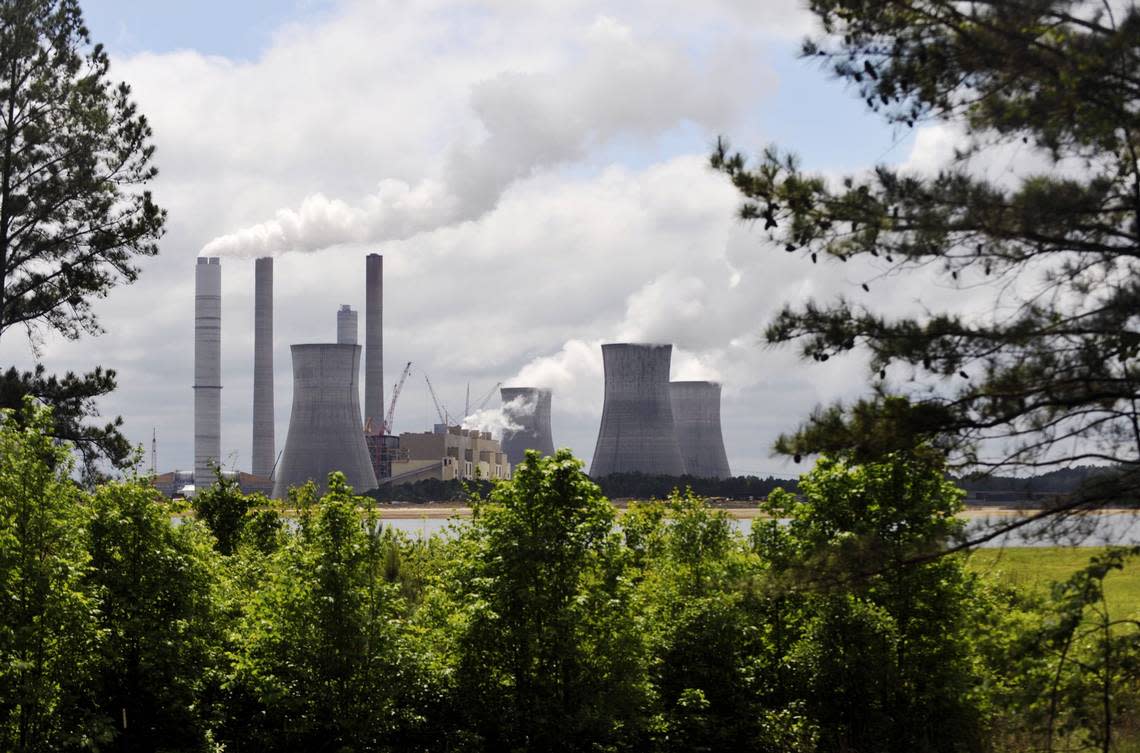Georgia Power facing lawsuits over pollution concerns connected to Juliette’s Plant Scherer
As Georgia Power prepares to shutter a massive Middle Georgia coal power plant over the next decade, it also faces several lawsuits from residents over the plant’s impact on their drinking water.
Two lawsuits are expected to be heard in Monroe County courtrooms, where local juries and judges will have to weigh pollution concerns lodged against one of the county’s largest employers.
Meanwhile, a recent EPA decision could prohibit Georgia Power from permanently storing coal ash in contact with groundwater at Plant Scherer.
The plant is operated by Georgia Power, which owns the majority of one coal-fired unit and has minority ownership in two others. A fourth unit, primarily owned by Florida Power & Light, was shuttered in 2021.
“I think this next year is going to be a pivotal year for Plant Scherer,” Chris Bowers, an attorney at the Southern Environmental Law Center with expertise in coal ash litigation, told the Telegraph.
Two lawsuits

At Plant Scherer, North America’s most powerful coal plant, coal ash — a byproduct of the coal power process that contains toxic heavy metals — has for generations been stored in an unlined pond in contact with groundwater. The plaintiffs say drinking water in Juliette, which many residents source from private wells, has been contaminated by the waste and linked to high rates of cancer in the county.
In a lawsuit brought by 45 Juliette residents in 2020, Georgia Power sought and won a change of venue from Fulton County to Monroe County.
In January, a new lawsuit was filed by the father of a Juliette resident who died of breast cancer in 2021.
In the lawsuit, Forsyth resident Timothy Carter says his daughter Jodi Carter, an Army veteran who lived in Juliette, died from “exposure to contamination from radium, radon, gross alpha, gross beta, lead, and strontium” after drinking and bathing in contaminated well water near the plant.
This case will also be heard in Monroe County Superior Court.
Disposal plans at Scherer
Meanwhile, Plant Scherer could go completely offline over the decade — and Georgia Power has no public plans to remove the coal ash from the unlined pond in which it’s now stored.
“Plant Scherer vividly illustrates for a number of reasons why these closure rules are what they say,” Bowers said. “Coal ash is a known source of toxic metals. Coal ash is unstable and it’s not something that’s appropriate to be stored in permanent contact with groundwater.”
But a recent decision by the Environmental Protection Agency to disallow permanent storage of coal ash in contact with groundwater at a coal plant in Ohio could force the state of Georgia to alter the plan for Scherer and other plants scheduled for closure.
The decision affirms an interpretation of federal coal ash disposal rules that Georgia Power and state environmental regulators have long rejected — that “it’s never been allowed to leave the waste in contact with groundwater,” said Fletcher Sams, director of the Altamaha Riverkeeper, whose testing of wells in Juliette was instrumental in bringing the issue to the public eye.
It is now up to the Georgia Environmental Protection Division to decide whether to implement the EPA’s decision at four coal plants in Georgia.
Among these plants, Sams said, Scherer is unique because it’s “surrounded on all sides by people who are living below the ash pond elevation” — and many locals’ drinking water comes directly from the ground.
In an email to the Telegraph, Georgia Power spokesperson Jacob Hawkins described the EPA decision as a “new position” on the coal ash rules and did not say whether it would impact closure plans at Scherer or other Georgia plants.
“Georgia Power continues to evaluate the EPA’s new position and, while review is ongoing, will continue to work with the Georgia EPD to ensure our closure plans remain in compliance with these rules,” Hawkins said.
New water line
In response to public concern over the contamination issue, Monroe County built a water line to bring municipal drinking water to Juliette residents.
But just half of eligible residents have hooked up to the new water line, according to the Monroe County Reporter.
Hundreds of Juliette residents, perhaps unable or unwilling to pay to connect their houses to the new water line, are choosing to either continue drinking from wells or drive to the nearby Maynard Baptist Church, where municipal drinking water is distributed free of cost, Sams said.
“People here, when they go to town, they take their jugs with them, like we’re in a third-world country going to the riverbanks to fill up our jugs,” said Juliette resident Andrea Goolsby.
